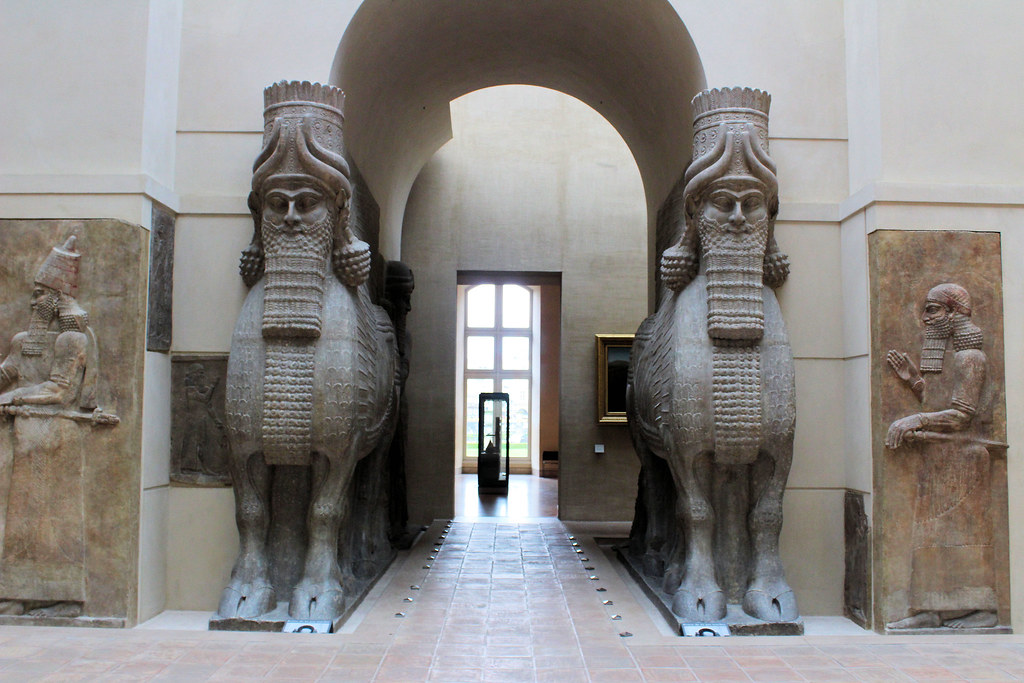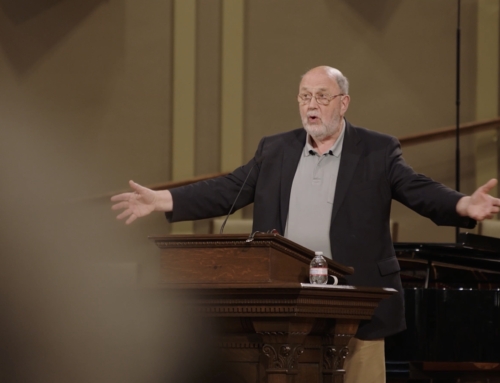The Book of Daniel, Professor N.T. Wright’s first course on the Old Testament will be available later this May! To ensure you receive a major discount the moment it’s available, enter your email here.
The Book of Daniel has been treasured by many, even from childhood, with its dramatic stories of God intervening to rescue his people. We all know the stories of Daniel in the lions’ den, the drama of Shadrach, Meshach, and Abed-nego being thrown into the fiery furnace only to be seen with a strange fourth person in the fiery furnace who appears ‘like a god’ to the king.
Key among the great stories remains the theme of Daniel’s steadfast worship of Yahweh, the Covenant God, over against the pagan deities. In addition, we see that Daniel is given abilities to interpret dreams and visions, so much so that he is admired among the pagan ‘dream interpreters’. He also is required to say hard words to the leaders of the pagan nation.
In one such case, King Nebuchadnezzar is told by Daniel that his kingdom will depart from Nebuchadnezzar until the king is humbled. After the humbling occurs, and after the king returns to his right mind, Nebuchadnezzar responds in Dan 4:34-37:
When that period was over, I, Nebuchadnezzar, lifted my eyes to heaven, and my reason returned to me.
34 I blessed the Most High,
and praised and honored the one who lives forever.
For his sovereignty is an everlasting sovereignty,
and his kingdom endures from generation to generation.
35 All the inhabitants of the earth are accounted as nothing,
and he does what he wills with the host of heaven
and the inhabitants of the earth.
There is no one who can stay his hand
or say to him, “What are you doing?”
36 At that time my reason returned to me; and my majesty and splendor were restored to me for the glory of my kingdom. My counselors and my lords sought me out, I was re-established over my kingdom, and still more greatness was added to me. 37 Now I, Nebuchadnezzar, praise and extol and honor the King of heaven,
for all his works are truth,
and his ways are justice;
and he is able to bring low
those who walk in pride.
The scene is played out again with Nebuchadnezzar’s son, who becomes king. King Belshazzar rules with much the same arrogance as did his father. Humbling was necessary. Daniel says to King Belshazzar in Daniel 5:18-23:
18 O king, the Most High God gave your father Nebuchadnezzar kingship, greatness, glory, and majesty. 19 And because of the greatness that he gave him, all peoples, nations, and languages trembled and feared before him. He killed those he wanted to kill, kept alive those he wanted to keep alive, honored those he wanted to honor, and degraded those he wanted to degrade. 20 But when his heart was lifted up and his spirit was hardened so that he acted proudly, he was deposed from his kingly throne, and his glory was stripped from him. 21 He was driven from human society, and his mind was made like that of an animal. His dwelling was with the wild asses, he was fed grass like oxen, and his body was bathed with the dew of heaven, until he learned that the Most High God has sovereignty over the kingdom of mortals, and sets over it whomever he will. 22 And you, Belshazzar his son, have not humbled your heart, even though you knew all this! 23 You have exalted yourself against the Lord of heaven! The vessels of his temple have been brought in before you, and you and your lords, your wives and your concubines have been drinking wine from them. You have praised the gods of silver and gold, of bronze, iron, wood, and stone, which do not see or hear or know; but the God in whose power is your very breath, and to whom belong all your ways, you have not honored.
The message could not be clearer for the readers of the Book of Daniel. The pagan, idolatrous gods of the nations are no match for Yahweh or for Yahweh’s servant, Daniel. To Daniel, King Belshazzar says in Daniel 5:13-14:
13 Then Daniel was brought in before the king. The king said to Daniel, “So you are Daniel, one of the exiles of Judah, whom my father the king brought from Judah? 14 I have heard of you that a spirit of the gods is in you, and that enlightenment, understanding, and excellent wisdom are found in you.
Isn’t it amazing that even the pagan kings recognize the work of God’s spirit even though the submission to Yahweh is absent?
The Book of Daniel presents many stories about God’s vindication of His people. We look at the Book of Daniel as those who depend on God’s actions in the midst of a pagan culture. For so long, many in certain cultures assumed that because they lived in a ‘Christian’ nation, they should look to the prevailing culture for vindication and instill laws and practices that are distinctly ‘Christian’. The Book of Daniel provides the examples for how a people follow God as a minority group and, indeed, how to live faithfully within that culture. It is a great lesson to learn.
For so long many assumed that because they lived in a ‘Christian’ nation, they should look to the prevailing culture for vindication and instill laws and practices that are distinctly ‘Christian’. We must look at this idea carefully. Click To Tweet
In the course by Prof. N.T. Wright on the Book of Daniel, we find not only the examples of God’s dramatic vindication, but we also see how, in the New Testament, Jesus picks up Daniel’s prophetic themes and brings them into focus for his day. The Book of Daniel is not simply for children’s Sunday School. It is for adults who wish to live wisely in a pagan culture. We do well to study it carefully.
David P. Seemuth
David P. Seemuth, PhD
Latest posts by David P. Seemuth, PhD (see all)
- Advent Reflections from the N.T. Wright Online Team - December 5, 2022
- YouTube as Public Reading of Scripture - August 29, 2022
- What I Learned From A Week With Professor Wright - June 16, 2022







